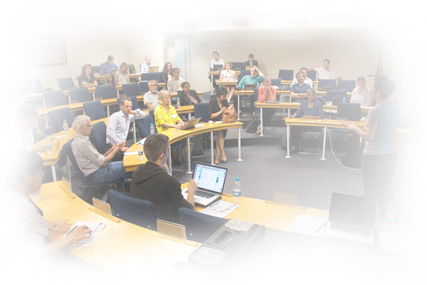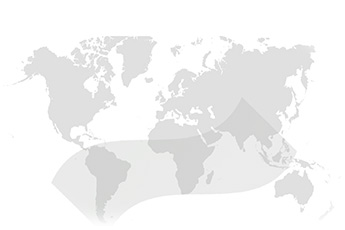Impact of integrating OER in teacher education at the Open University of Sri Lanka
Project overview
Project outputs
General Objective: To investigate the impact of integrating OER in educational practice of student teachers, in terms of changes in the quality of teaching-learning materials teachers use, as well as changes in their pedagogical perspectives and practices.
Research questions:
- What are the impacts of OER integration on changes in the quality of instructional material teachers use?
- What are the impacts of OER integration on changes in teachers’ pedagogical perspectives?
- What are the impacts of OER integration on changes in teachers’ pedagogical practices?
Overview
The Sri Lankan general education sector has made a unique contribution to economic and social development in Sri Lanka, particularly through several policy reforms; issues such as limited use of novel instructional materials and lack of engagement in innovative pedagogical approaches by teachers are, however, often observed in the general schooling system (National Education Commission Report, 2016). Several initiatives have already been implemented to address the needs of the country’s education system in order to meet the challenges of the new millennium. Noteworthy and progressive actions have been taking place since January 2017, targeting the development and implementation of a national policy on sustainable development in line with the UN’s Sustainable Development Goals and with the government’s vision for a “Sustainable Era”.
OER is relatively a novel conception in the Sri Lankan education system. Several initiatives implemented by the Faculty of Education at the Open University of Sri Lanka (OUSL) have resulted in increased levels in the adoption of OER among practitioners through raising awareness and developing capacities. These studies also revealed the necessity of a close partnership between researchers and practitioners in such a process, as well as the significance of designing of appropriate experiences in a systematic manner (Karunanayaka & Naidu, 2014). Furthermore, access to reliable and useful learning resources and the costs of these learning resources are often identified as substantial obstacles to education and training in developing contexts (Dhanarajan & Porter, 2013). The notion of Open Educational Resources (OER) supports achieving development goals in education through expanding access to knowledge, widening participation in education, promoting sharing of knowledge and enhancing life-long learning (UNESCO, 2012). In order to achieve sustainable development through education, there is a need to change the way people – especially, the educators, think and act.
This research project was designed and implemented to engage student teachers in the Faculty of Education, OUSL to integrate OER in their teaching-learning process and investigated its impact. The study engaged a representative sample of student teachers in the Postgraduate Diploma in Education (PGDE) programme at OUSL, which is an in-service professional development programme for school teachers offered in three different languages (Sinhala, Tamil and English) in OUSL regional and study centres (representing the nine provinces of the country). It aimed to empower school teachers with the competencies to use, adapt, adopt, create, and adapt OER in their teaching-learning process, while ascertaining its impacts.
In light of the fact that change efforts often focus on materials and overlook people, it has been argued that if the intended outcomes of an educational innovation are to be achieved, it is essential to have changes in actual practices along three dimensions: the possible use of new or revised materials; the possible use of new teaching approaches; and the possible alteration of beliefs (Fullan & Stiegelbauer, 2007). Considering integration of OER as an educational innovation, the conceptual framework of this study was formulated based on these three dimensions. Accordingly, the study focused on ascertaining the impacts of OER integration in teaching and learning upon changes in the quality of teaching-learning materials teachers use, changes in teachers’ pedagogical practices, and changes in pedagogical perspective.
In order to ascertain the impact of OER integration by teachers, a design-based research (DBR) approach (Reeves, 2006) was adopted which is a systematic and flexible methodology aimed at improving educational practices through iterative analysis, design, development, and implementation. In this study, where the key goal was to ascertain impacts of OER integration in teaching and learning by teachers in terms of changes in their use of instructional resources, pedagogical thinking and pedagogical practices, DBR offers a useful framework for researchers to act as designers collaboratively with practitioners to improve their educational practices in real life situations. This comprised a three-phase intervention programme with multiple strategies of data collection and analysis, using both quantitative and qualitative methods.
References
Dhanarajan, G. & Porter, D. (2013) (Eds.). Open educational resources: An Asian perspective. Vancouver: Commonwealth of Learning and OER Asia.
Fullan, M., & Stiegelbauer, S. (2007). The new meaning of educational change. 4th ed. New York: Teachers College Press.
National Education Commission (NEC), Sri Lanka (2016). Study on Curriculum Development in General Education in Sri Lanka. Retrieved from http://nec.gov.lk/wp-content/uploads/2016/04/1-Final-6.pdf.
Karunanayaka, S. & Naidu, S. (Eds.) (2014b). Integrating OER in Educational Practice: Practitioner Stories. Nugegoda: The Open University of Sri Lanka. Retrieved from
Reeves, T.C. (2006). Design research from a technology perspective. In J. van den Akker, K. Gravemeijer, S. McKenney & N. Nieveen (Eds.), Educational design research (pp. 52-66). London: Routledge. Retrieved from: http://www.fisme.science.uu.nl/publicaties/literatuur/EducationalDesignResearch.pdf#page=102
UNESCO-COL (2012). Paris OER Declaration. Retrieved from <http://www.unesco.org/new/fileadmin/MULTIMEDIA/HQ/CI/CI/pdf/Events/Paris%20OER%20Declaration_01.pdf>
Project Outputs
Edited Book
Karunanayaka, S. & Naidu, S. (eds) (2016). Dreamweaving Open Educational Practice. Nawala, Nugegoda, Sri Lanka: The Open University of Sri Lanka. Retrieved from
Journal articles
Karunanayaka, S. P., & Naidu, S. (in press). A design-based approach to support and nurture open educational practices. (Paper submitted for being published in the AAOU Journal)
Karunanayaka, S. P., Naidu, S., Kugamoorthy, S., Ariyaratne, A., Dhanapala, T.D.T.L. & Gonsalkorala, L.R. (in press). Opening up Access to Education with Open Educational Resources (Paper submitted to be considered for being published in the Journal of NSF – Sri Lanka Journal of Social Sciences)
Naidu, S. & Karunanayaka, S. P., (under preparation). Developing an index (OEP-IE) to evaluate changes in the impacts of adopting Open Educational Resources in teaching and learning
Conference papers
Naidu, S. & Karunanayaka, S. P. (2017). Development of the Open Educational Practices Impact Evaluation Index. Presented at Open Education Global Conference, 8-10 March 2017, Cape Town. Retrieved from https://www.slideshare.net/oeconsortium/oerintegrated-teaching-and-learning-in-a-postwar-northern-sri-lanka-73089222
Kugamoorthy, S., Rajini, M., Karunanayaka, S.P., & Naidu, S. (2017). OER-Integrated Teaching and Learning in a Post-War Northern Sri Lanka. Research paper presented at the OE Global-2017 Conference 8-10 March 2017, Cape Town, South Africa.
Karunanayaka, S. P., & Naidu, S. (2017). Designing Integration of OER and OEP. Research paper presented at the 2017 ODLAA Conference. 5-7 February, 2017, Melbourne, Australia.
*(Paper was shortlisted for the Best Written Paper Award – ODLAA-2017)
Karunanayaka, S.P., Naidu, S., Kugamoorthy, S., Dhanapala, T.D.T.L., Ariyaratne, A., Gonsalkorala, L.R., Rajini, M., Weerakoon, S. , Wanasinghe, S., Karunanayaka, S., Sudarshana, M.L., Nawaratne, R., Fernando, M.N.C., & Gnaneratnam, K. (2016). Towards open educational practices with reflective practice. Research paper presented at the Open University Research Sessions (OURS)-2016, 17-18 November, 2016, Nawala, Sri Lanka
Karunanayaka, S. P., Naidu, S. & Menon, M. (2016). Transformational Change at the Intersections of Technology, Education and Design at the Open University of Sri Lanka. Research paper presented at the Eighth Pan-Commonwealth Forum on Open Learning (PCF8), 27-30 November, 2016, Kuala Lumpur, Malaysia. Available at http://oasis.col.org/handle/11599/2513
*Karunanayaka, S. P., & Naidu, S. (2016). A design-based approach to support and nurture open educational practices. Research paper presented at the 30th Annual Conference of the Asian Association of Open Universities (AAOU), 26-29 October 2016, Manila, Philippines.
*(Paper received the Gold Medal for the Best Practice Award – AAOU-2016)
Karunanayaka, S. P., Naidu, S., Kugamoorthy, S., Ariyaratne, A., Dhanapala, T.D.T.L. & Gonsalkorala, L.R. (2015). Openness in Education: Teacher perspectives through concept mapping. Research paper presented at the 29th Annual Conference of the Asian Association of Open Universities (AAOU), Kuala Lumpur, Malaysia, 30 November to 2 December, 2015. Retrieved from /
Karunanayaka, S.P., Naidu, S., Kugamoorthy, S., Gonsalkorala, L.R., Ariyaratne, A., Dhanapala, T.D.T.L., Rajini, M., Wanasinghe, S., Weerakoon, S. , Karunanayaka, S., Sudarshana, M.L., Nawaratne, R., Fernando, M.N.C., & Gnaneratnam, K. (2015). Perspectives and practices of student teachers of OUSL in the use of OER in teaching and learning. Research paper presented at the OUSL Annual Academic Sessions-2015, held 19-20 November, 2015, at OUSL, Nawala.
Naidu, S. & Karunanayaka, S. P. (2015). Impacts of OER: What difference does it make & how? Research paper presented at the International Conference on Distance Education (ICDE), held 14-16 October, 2015, at Sun City, South Africa, hosted by the University of South Africa (Unisa). Retrieved from
Karunanayaka, S. P., Naidu, S., Kugamoorthy, S., Ariyaratne, A., Dhanapala, T.D.T.L. & Gonsalkorala, L.R. (2015). Opening up Access to Education: Role of Open Educational Resources. Research paper presented at the International Conference on Promoting Socio-Economic Equity in South Asia: Challenges and Prospects, held 15-16 July 2015, National Science Foundation, Colombo, Sri Lanka
Poster Presentations (Related to ROER4D Study)
Karunanayaka, S. P., & Naidu, S. (2016). From mindsets to mindstorms: Promoting transformational change in OEP at OUSL. Poster displayed at the fourth OEPS Forum, held 9th March 2016, Scotland, UK. Retrieved from https://oepscotland.files.wordpress.com/2016/03/oepsforum4_poster-karunanayaka_naidu_march2016.pdf
Keynote Presentations (Related to ROER4D Study)
Karunanayaka, S. P. (2016). Towards OEP: Possibilities & Challenges. Keynote Address delivered at the 3rd eLearning and Distance Education Conference (ELDEC), held 14-15 March 2016, Virtual University of Pakistan, Lahore, Pakistan. Retrieved from
Blog Site
Dreamweaving Open Educational Practices https://oertlousl.wordpress.com/




[…] SP10.6: Impact of OER in teacher education in Sri Lanka […]